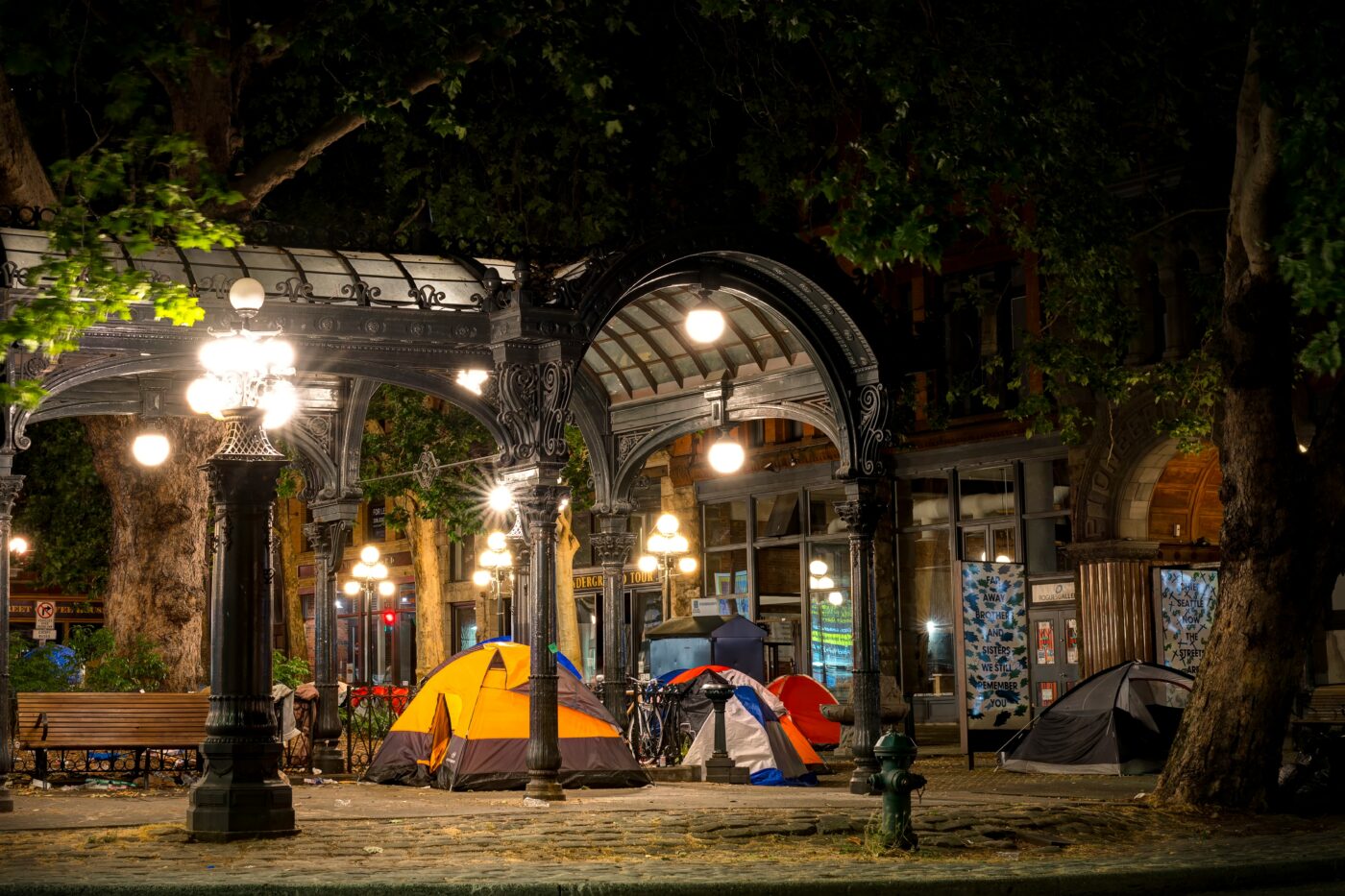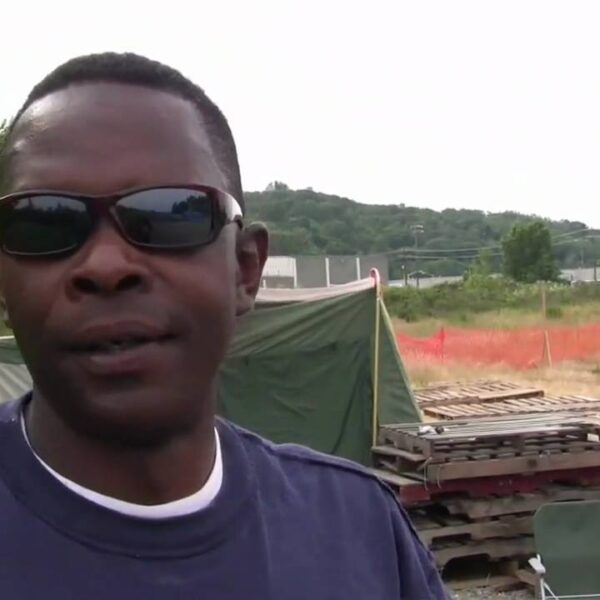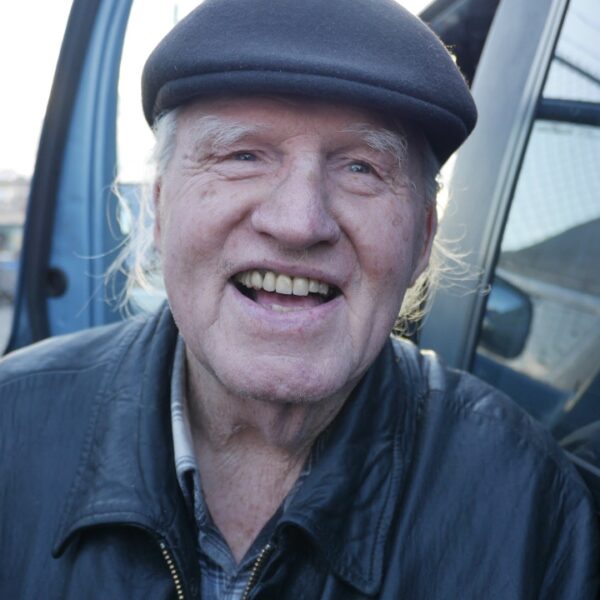Online Groups, Politicians, and Public Attitudes Embolden Violent Behavior Toward Homeless People
This story will discuss sensitive topics such as harassment and fatal violence toward homeless people. It includes specific descriptions of targeted violence and details of crime scenes that may be considered graphic. Please take care while reading.
Another serial killer targeting homeless people has been terrorizing an American city. This time, it’s Seattle. Tragically, this is far from the first time this has happened. And if we don’t confront the culture we’ve created, it won’t be the last time either.
Homeless people are so thoroughly dehumanized, vilified, and rejected from “polite society” that people have started to feel completely comfortable wishing horrible things upon them- and some people act on that impulse.
Instead of viewing our unhoused neighbors with compassion and recognizing that they’re people with equal inherent value to ourselves, the narrative is shifting toward painting them as dangerous “others” who are destroying our towns and cities with their mere presence.
Some of the violence enacted on unhoused people is opportunistic in the sense that a violent person is looking for an easy victim, and unhoused people sleeping on the streets fit the bill. But chillingly, we are now seeing violence directed at homeless people because they are homeless, which points to a deeper issue with how we’re framing the issue of homelessness culturally.
Ax Murderer Attacks Sleeping Homeless Man
After arresting a suspect in connection with the murder of Daravuth Van, a 52-year-old homeless Seattleite, authorities were hesitant to definitively draw a connection between this murder and four other murders of unhoused people in the area that occurred under seemingly similar circumstances.
This is the part where I have to discuss specific details of the violent crimes; this is the last chance to skip ahead.
On the night of Daravuth Van’s death, security footage shows him sleeping in an alcove outside of Town Hall Seattle. His murderer passes by his sleeping form several times during one hour in the early morning, eventually finding a window with no witnesses to approach Van, who was still asleep, and swing a long-handled ax down onto his head, killing him. About an hour and a half later, at 5 am, Van’s body is discovered in a pool of blood, and emergency responders are called.
That all occurred on February 22. During that same month, a series of similar attacks occurred around the same area.
On February 10, a body was discovered early in the morning behind the offices of the Men’s and Women’s Chorus, about a mile from Town Hall Seattle. This victim, too, was found in a pool of blood with head trauma. Neighbors nearby identified him as Paul Ernest Ewell, a 68-year-old homeless man. His official cause of death was listed as “homicide due to multiple sharp force injuries of the head.”
On February 18, the body of 37-year-old Jared Alex Redding was discovered in a vacant parking lodge half a mile away from Town Hall with multiple blunt force injuries.
On February 25, a man was critically stabbed in the chest at a park less than a mile away from Town Hall after an altercation with a man in his 20s.
No suspect has been arrested in connection with any of these other three attacks.
A person matching the description of the suspect in the murder of Daravuth Van and carrying an ax was spotted at 3 am on March 2, near Freeway Park and very near Town Hall. When approached by police, he ran and managed to get away. He was arrested the next day at his residence, nearby Town Hall.
Seattle Serial Killer Kept Quiet
The news of the arrest was the first time many Seattleites had heard about the problem at all. Internally, the Seattle Police Department had been on the lookout for a suspected serial killer targeting homeless people for weeks.
Many advocates are now questioning why police didn’t do more to protect the vulnerable, unhoused population or at least let the public in on its suspicions that a killer was on the loose. The lack of a public warning left some in the unhoused community of Seattle feeling like little more than bait in SPD’s game of cat and mouse.
SPD has been asked about its decision not to warn the public and has not spoken on the topic much more than to say that the investigation’s integrity was a top priority. It’s difficult to hear that and not wonder if priorities would have been different if it wasn’t “just” homeless peoples’ lives on the line.
The Societal Supports of Anti-Homeless Sentiment
Anti-homeless sentiment has been rising in recent years, and it’s part of the reason we’re seeing these types of violent crimes. If you’re rolling your eyes right now, understand that I’m not literally saying mean Facebook comments have the power to kill people. What starts in small ways can quickly snowball out of control into bigger and more significant problems.
Years of dehumanizing propaganda, hostile architecture, and criminalization policies send a clear message that homeless people are not welcome and that they’re not like the rest of us. That message is picked up by housed and unhoused people alike.
Because of this underlying understanding, separation and mistreatment are normalized. It’s become normal to ignore any unhoused people you see on the street, to assume that they’re violent substance users, and to call the police on people for simply existing.
It didn’t always used to be this way. Looking around now, we’re midway down a pipeline that ends in the normalization of more and more violence against unhoused people without anyone batting an eye.
In a statement made about the recent violence in Seattle, ACLU of Washington said it best:
“Unhoused people are often targeted due to their vulnerability, but that vulnerability is further exacerbated by a public discourse that promotes fear of and suspicion against them, and policies that continue to criminalize their existence in public spaces.”













